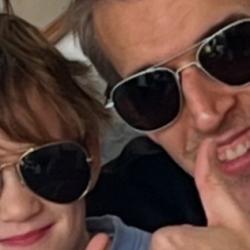Latin for “unconquered”, I remember hearing these incredible words for first time in the film Invictus, spoken by Nelson Mandela (played by Morgan Freeman). Mandela would reflect upon these words while he was imprisoned. The prose is actually from the poem Invictus by William Ernest Henley. It’s worth sharing in its entirety:
Out of the night that covers me,Black as the pit from pole to pole,I thank whatever gods may beFor my unconquerable soul.In the fell clutch of circumstanceI have not winced nor cried aloud.Under the bludgeonings of chanceMy head is bloody, but unbowed.Beyond this place of wrath and tearsLooms but the Horror of the shade,And yet the menace of the yearsFinds and shall find me unafraid.It matters not how strait the gate,How charged with punishments the scroll,I am the master of my fate,I am the captain of my soul.
There are some incredible Stoic principles here; chief among them is focusing on what you can control. This was not just rhyme for Henley, but a lifelong meditation. He had a painful tuberculosis (TB) infection of his bones, eventually requiring a leg amputation. He was disabled throughout his adult life and died of pulmonary TB. Mandela who took inspiration from the poem not only while imprisoned, but recovering after his release. After taken to a hospital, he couldn’t speak and had hemoptysis and only recovered after four months of treatment. [1]
“Bloody, but unbowed”, despite despair, “shall find me unafraid” – because “I am captain of my own soul” – my “unconquerable soul”. These themes exemplify the central tenant of Stoic philosophy known as the “dichotomy of control”. If you’re unfamiliar with the philosophy, I’d highly recommend Massimo Piggluicci’s book How to be a Stoic (here is my review) as well as my podcast with Massimo.
Whether imprisoned, facing a serious ailment, tragedy, hardship, or even death, we always are in control of our own attitudes and response to the situation. We always have a choice. In Viktor Frankl’s words, “man can preserve a vestige of spiritual freedom, of independence of mind, even in such terrible conditions of psychic and physical stress”. Even in the midst of losing everything, the last of human freedom remains: “to choose one’s attitude in any given set of circumstances, to choose one’s own way.” (If you haven’t read Frankl’s masterpiece A Man’s Search for Meaning, it’s perhaps the most powerful book that I have ever read). Chaps like Frankl, Mandela, and Henley have earned the right to make these claims after 4 concentration camps (Frankl), 27 years of imprisonment (Mandela), a life filled with disease and suffering (Henley).
Their unconquerable souls have given us all perspective. If they can employ the dichotomy of control in the direst of straits, we too can be masters of our fate; captains of our souls.
Notes:
[1] Bloom S. I am the master of my fate. Emerg Infect Dis [Internet]. 2014 Mar
[2] Image credit: Hfastedge, US Public Domain
Source: Wikimedia Commons

















